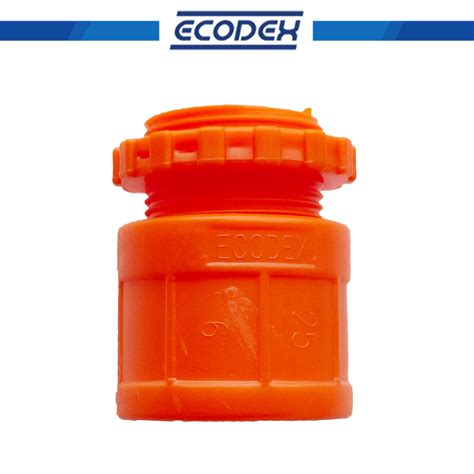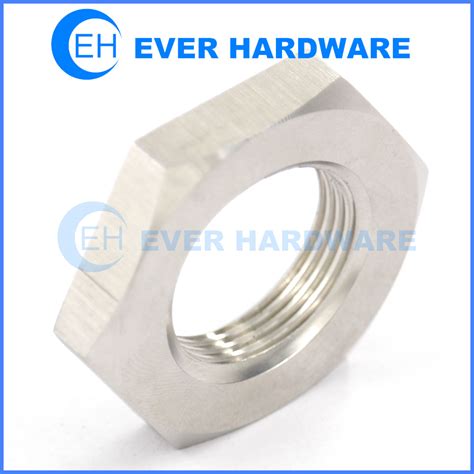electrical box common nut sizes When it comes to electrical boxes, it is important to use the correct screw size to ensure a secure fit. The most common screw sizes for electrical boxes are 6-32, 8-32, and 10 . Ga. is different from inches, there is no conversion formula. Even when the non-ferrous metal plate and the steel plate are the same Ga., the thickness is actually different. You can find the gauge to mm / inch conversion for sheet metal by the chart below.
0 · pvc connector with lock nut
1 · metric panel nuts
2 · locknut electrical conduit
3 · electrical panel nuts
4 · electrical lock nut
5 · electrical box screw size chart
6 · conduit nuts
7 · conduit lock nut
I am looking for the brackets that go in the back of the dresser drawers They are brown in color, square in shape and have a metal covering. The dresser drawer slides onto them as you .
The most common size screw to use in an electric box is a 6-32 flathead screw. For heavier applications, like ceiling lighting and ceiling fans, an 8-32 screw will work better. Ground screws in electrical boxes are always 10-32 .
When it comes to electrical boxes, it is important to use the correct screw size to ensure a secure fit. The most common screw sizes for electrical boxes are 6-32, 8-32, and 10 .
pvc connector with lock nut
metric panel nuts
Standard electrical box screws have a diameter of #6 (3.5mm) or #8 (4mm). The screw length should be sufficient to penetrate the box and securely fasten it without protruding. . The most common screw size for electrical boxes is a 6-32 flathead screw. However, for heavier applications like ceiling lighting and fans, an 8-32 screw is more suitable. Ground screws in electrical boxes are typically 10-32 .I was wondering which size nut drivers do you use most frequently. My most frequently used are: 7/16, 3/8, 9/16, and an occasional 5/16. I only ask because I typically only use 4 out of my 9 . Learn what size electrical box screws you need for your next project with our handy guide. We'll cover everything from standard sizes to metric measurements, so you can .
Choosing the right size screws for electrical boxes is crucial for a secure and stable installation, ensuring safety and preventing hazards such as loose connections or compromised structural integrity. First, this has to be a properly installed ceiling fan box - you can't put a fan on a lamp box because the dynamic forces of the vibration will tear it out of the ceiling. On normal electrical boxes, screws are usually 6-32. this being . The size chart below indicates the minimum and the maximum size and numbers of wire that go with the wire nut of a particular color. How To Select a Wire Nut? To select a wire nut, determine the type (solid or stranded) and . This wire nut size chart can help you choose a wire nut of the right color and size for your next electrical project.
The most common size screw to use in an electric box is a 6-32 flathead screw. For heavier applications, like ceiling lighting and ceiling fans, an 8-32 screw will work better. Ground screws in electrical boxes are always 10-32 and must be painted visibly green. When it comes to electrical boxes, it is important to use the correct screw size to ensure a secure fit. The most common screw sizes for electrical boxes are 6-32, 8-32, and 10-32. These screws are used for different components of the electrical box, such as mounting fixtures, switches, and covers. Standard electrical box screws have a diameter of #6 (3.5mm) or #8 (4mm). The screw length should be sufficient to penetrate the box and securely fasten it without protruding. For outlet and switch boxes, a common screw size is #6 (3.5mm) or #8 (4mm) with a length of 1.25 inches (32mm) or longer.
The most common screw size for electrical boxes is a 6-32 flathead screw. However, for heavier applications like ceiling lighting and fans, an 8-32 screw is more suitable. Ground screws in electrical boxes are typically 10-32 and must be painted green for visibility and to meet electrical codes. I was wondering which size nut drivers do you use most frequently. My most frequently used are: 7/16, 3/8, 9/16, and an occasional 5/16. I only ask because I typically only use 4 out of my 9 nut drivers and I'm thinking it could just be my series of . Learn what size electrical box screws you need for your next project with our handy guide. We'll cover everything from standard sizes to metric measurements, so you can be sure you're getting the right screws for the job.
Choosing the right size screws for electrical boxes is crucial for a secure and stable installation, ensuring safety and preventing hazards such as loose connections or compromised structural integrity. First, this has to be a properly installed ceiling fan box - you can't put a fan on a lamp box because the dynamic forces of the vibration will tear it out of the ceiling. On normal electrical boxes, screws are usually 6-32. this being a . The size chart below indicates the minimum and the maximum size and numbers of wire that go with the wire nut of a particular color. How To Select a Wire Nut? To select a wire nut, determine the type (solid or stranded) and size (gauge) of the wires you are connecting. This wire nut size chart can help you choose a wire nut of the right color and size for your next electrical project.
locknut electrical conduit
The most common size screw to use in an electric box is a 6-32 flathead screw. For heavier applications, like ceiling lighting and ceiling fans, an 8-32 screw will work better. Ground screws in electrical boxes are always 10-32 and must be painted visibly green. When it comes to electrical boxes, it is important to use the correct screw size to ensure a secure fit. The most common screw sizes for electrical boxes are 6-32, 8-32, and 10-32. These screws are used for different components of the electrical box, such as mounting fixtures, switches, and covers. Standard electrical box screws have a diameter of #6 (3.5mm) or #8 (4mm). The screw length should be sufficient to penetrate the box and securely fasten it without protruding. For outlet and switch boxes, a common screw size is #6 (3.5mm) or #8 (4mm) with a length of 1.25 inches (32mm) or longer. The most common screw size for electrical boxes is a 6-32 flathead screw. However, for heavier applications like ceiling lighting and fans, an 8-32 screw is more suitable. Ground screws in electrical boxes are typically 10-32 and must be painted green for visibility and to meet electrical codes.
I was wondering which size nut drivers do you use most frequently. My most frequently used are: 7/16, 3/8, 9/16, and an occasional 5/16. I only ask because I typically only use 4 out of my 9 nut drivers and I'm thinking it could just be my series of . Learn what size electrical box screws you need for your next project with our handy guide. We'll cover everything from standard sizes to metric measurements, so you can be sure you're getting the right screws for the job.
Choosing the right size screws for electrical boxes is crucial for a secure and stable installation, ensuring safety and preventing hazards such as loose connections or compromised structural integrity.
First, this has to be a properly installed ceiling fan box - you can't put a fan on a lamp box because the dynamic forces of the vibration will tear it out of the ceiling. On normal electrical boxes, screws are usually 6-32. this being a . The size chart below indicates the minimum and the maximum size and numbers of wire that go with the wire nut of a particular color. How To Select a Wire Nut? To select a wire nut, determine the type (solid or stranded) and size (gauge) of the wires you are connecting.


electrical panel nuts

electrical lock nut
electrical box screw size chart
conduit nuts
Get the best deals for Vintage Metal Soap Box at eBay.com. We have a great online selection at the lowest prices with Fast & Free shipping on many items!
electrical box common nut sizes|pvc connector with lock nut